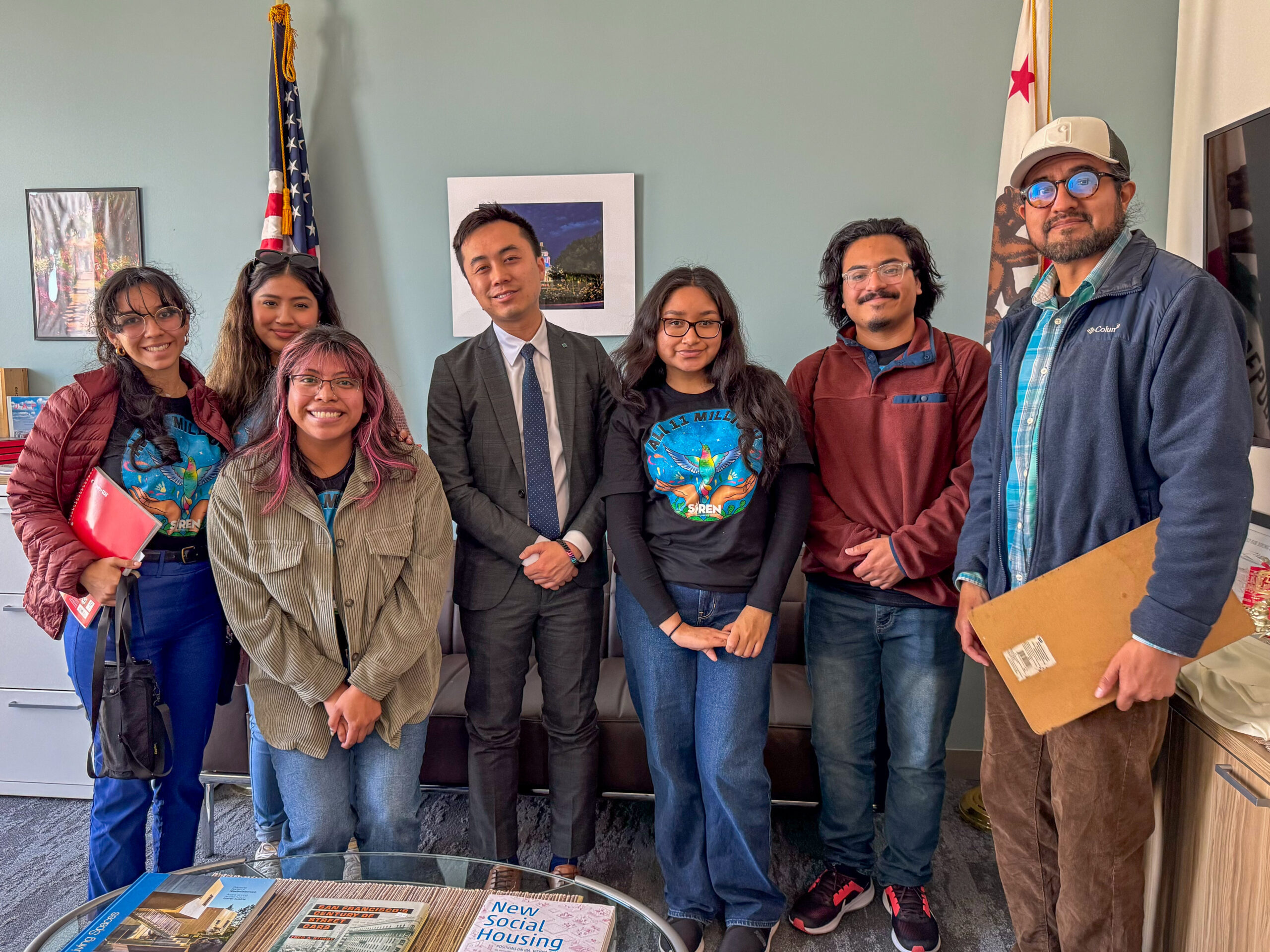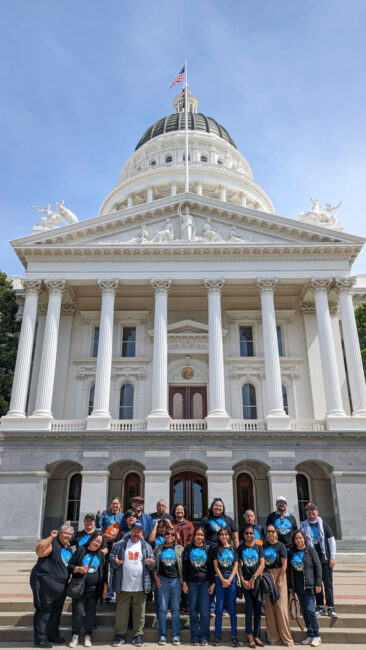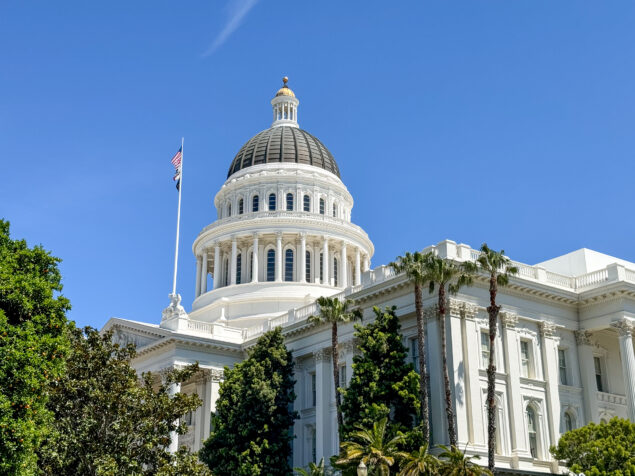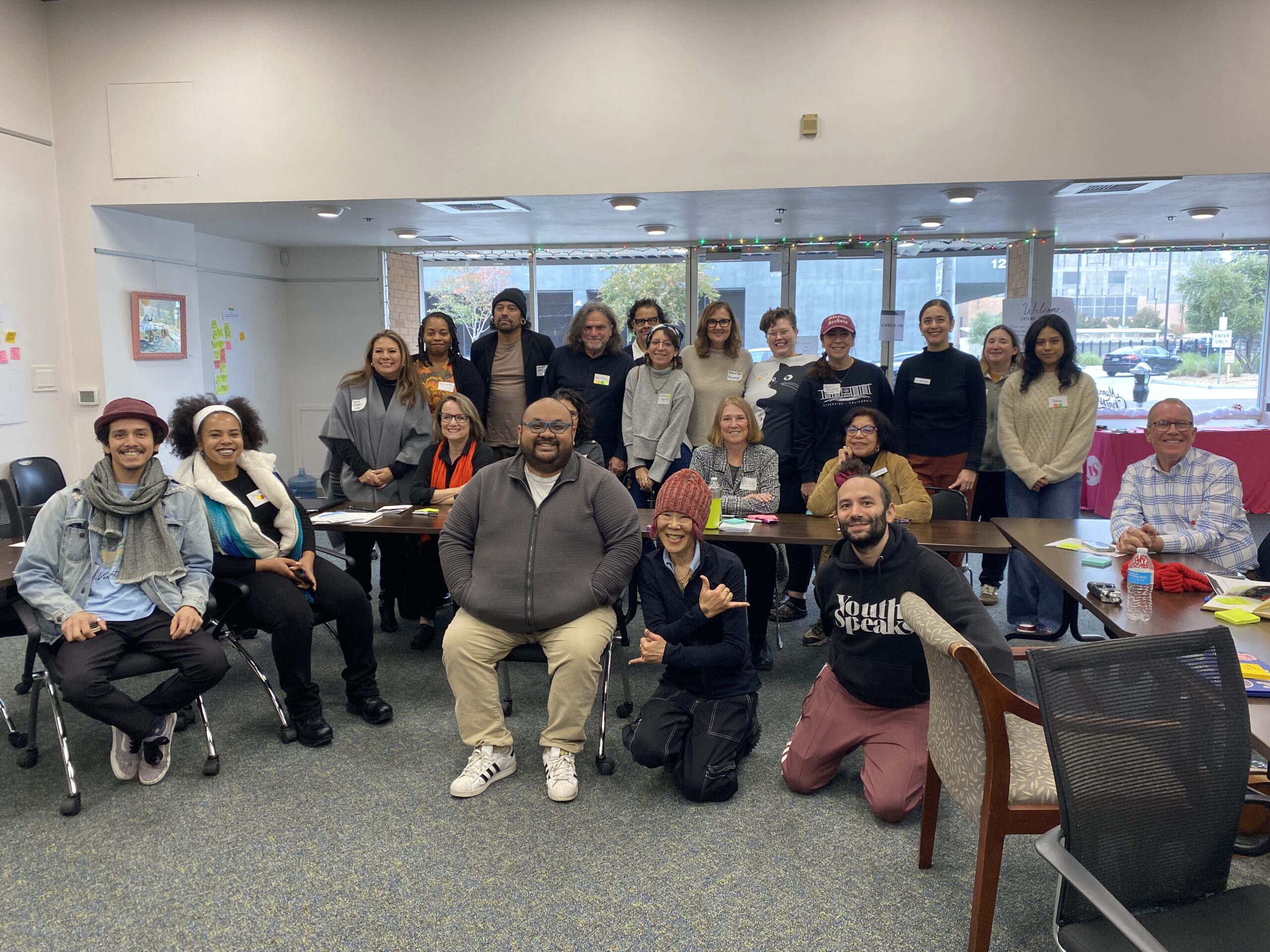
This past Tuesday, hundreds of community leaders gathered at California’s Capitol building in Sacramento to fight for immigrant rights.
Every year, the California Immigrant Policy Center (CIPC) holds an Immigrant Day of Action (IDA) where advocates and leaders from all over the state come together to celebrate the diversity and resilience of the immigrant community and meet with elected state representatives to lobby for pro-immigration policies.
This year, I attended IDA as an intern with California’s Services, Immigrant Rights, and Education Network (SIREN), a nonprofit organization that provides support and services for immigrants and refugees in California. My group and I were able to meet with a few California representatives making waves in the state’s immigrant legislation.
At 10:30 a.m., we checked in, trodded through security, and made our way to Alex Lee’s office on the 4th floor. Lee is the youngest California Assembly Member at only 28 years old. He is very progressive, advocating for policies supporting universal health care and immigrant communities, and is the first openly bisexual CA representative in state history.
We were welcomed into his office, decorated with impressive certificates, colorful posters, and photos of events. The “Advocate for Indigenous Communities” sign and small pride flag in his office put our group at ease, and let us know that we had entered a safe space.
He listened intently as we shared our stories and thanked him for his ongoing support of pro-immigrant legislation such as Assembly Bill 4, Health4All, which extends California healthcare to all California residents, regardless of immigration status.

“We are really appreciative of your lobbying efforts to continue putting pressure on members to support immigration services,” said Lee in response. “Know that it is something that is really important to me, my team, and other members. Our commitment to the humanitarian crisis at the border is really important to us. We want to make sure we’re doing our part.”
He also mentioned that his team is fighting to keep funds in pro-immigrant programs and policies, especially in light of Gov. Newsom’s proposed budget cut for the 2024-2025 fiscal year, which would take $15.2 million away from immigration and legal services funding.
“We are fighting to keep that money [in immigration and legal services],” Lee said. “Obviously, we have the issue of the deficit right now, but cutting funding for programs [that support] healthcare or foster systems is not acceptable to me.”
Experiences like this are critical to the future of our vibrant immigrant communities in California. Elected officials experiencing our stories and gratitude firsthand lets them know that we are here, that their political work matters, and that our voices make a difference.
We were also lucky enough to meet with the office of Esmerelda Soria, a representative for our very own Central Valley, who made city history as Fresno’s first Latina city council president. Soria was unable to make the meeting, but her executive secretary, Joana Enriquez, met with us on her behalf.
Our group included four members from SIREN, as well as members from Fresno’s Education and Leadership Foundation (ELF), and the Central Valley Immigrant Integration Collaborative (CVIIC). Enriquez listened to our stories, some in English, some in Spanish.
One member of CVIIC spoke in Spanish, first thanking Enriquez for her bilingual ability. He shared how important it is for immigrant families to have access to affordable resources.
“No solamente es un problema para la cabeza de familia. [A veces] Tiene dos, tres, cuatro, cinco personas, y a veces cuando se pierden ingresa, se pierden toda la familia. Hijos que tienen que dejar de estudiar para poder apoyar a su familia, y cosas así.”
“It is not just a problem for the heads of households. Sometimes, there are two, three, four, five people, and when one loses income, the whole family loses it too. Children have to leave their schooling to be able to support their family, and things like that.”
The Safety Net 4 All Coalition proposes policies for extended access to healthcare and food security. With budget cuts to these types of programs on the line, many are worried about the effects this will have on low-income immigrant families.
“While we understand that we are facing a budget deficit this year, the importance should be placed on underserved communities, like immigrants, who provide so much, and have so little access to different things,” noted Matias Bernal, ELF’s executive director.
Enriquez assured us that Soria, as a daughter of Mexican immigrants, would provide every possible support for more immigration services funding.
“I know for a fact that she is very supportive of these bills and she has been carrying the voice, speaking to other members and making sure that it is a priority,” Enriquez said.
The last event of the day was a rally in front of the Capitol building, where several speakers took the stage to voice their support for IDA, including assemblymember Joaquin Arambula representing Fresno and the Central Valley, assemblymember Miguel Santiago representing downtown Los Angeles and the surrounding area, and a member of SIREN.
Arambula announced, “It’s our responsibility as representatives to make sure we are standing up for all the people in our state, and demanding that the laws work for all of our communities. I am proud to stand with the immigrant communities here today, and I am grateful for all the work we’ve done together, and for all we will accomplish together in the future”

Santiago took the stage next, speaking on food security for immigrant communities. He spoke on the importance of the Food4All bill, which extends CalFresh access to all of California, regardless of immigration status.
“To me, it doesn’t make sense that some of the people that pick the food can’t afford to eat that same food,” he said.
The crowd roared in agreement.
Finally, a member of SIREN spoke on their experience as an undocumented person, and the lack of resources available to them despite the amount of taxes they and their family have paid over the years.
“Te quitan taxes para todo. Yo no digo que no vamos a pagar. Todo lo que pagamos, porque somos inmigrantes, somos trabajadores, y no queremos nada gratis porque queremos trabajar. Pero a lo que voy, pagas taxes por trente anos aqui, y todavía no puedes legalizarte.”
“They put taxes on everything. I’m not saying we’re not going to pay them. We pay everything, because we are immigrants and we are workers, and we don’t want anything for free because we want to work. What I’m saying is, you pay taxes here for thirty years, and you still cannot be legalized.”
The day ended with popsicles, beverages, and a giant group photo in front of the capitol building. Every voice was chanting “SI SE PUEDE!”, a phrase meaning “YES WE CAN!” that originated from the United Farm Workers protests of the 70s.
Until the next IDA, the organizations there will continue their work supporting immigrants and refugees in the Central Valley and beyond. The experience was truly encouraging and empowering, and what’s more, it was not the first, nor will it be the last time immigrant communities and allies come together to fight for something greater than themselves.


